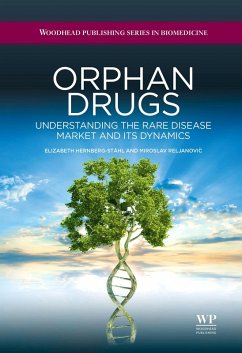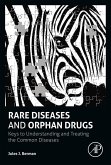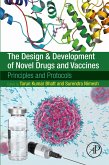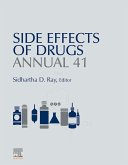The journey from application of an orphan drug designation to a reimbursed market- approved drug is long and many obstacles occur during the journey.
After reading the book, readers will: Understand who the players/stakeholders are in the rare orphan disease field and their specific needs and concerns: patients and patient organizations, researchers and treating physicians within the field, industry, regulatory and reimbursement bodies* Understand the strong partnership between the different players and the various initiatives to improve and increase access to treatment for patients; minimizing the gap between numbers of known diseases, orphan designations, approved drugs and paid drugs.
The book also provides short practical case stories from patients and researchers, as well as representatives from industry and authorities on the challenges they came across in developing orphan drugs or getting access to orphan drugs.
- A comprehensive overview of strategy, key activities and considerations of how to bring an orphan drug from concept to the market and make it available to patients
- A source of updated information, news and trends for those who are already active in this fast-evolving field
- Covers the global definitions and the criteria for getting an orphan drug designation in, for example, the US and Europe
Dieser Download kann aus rechtlichen Gründen nur mit Rechnungsadresse in A, B, BG, CY, CZ, D, DK, EW, E, FIN, F, GR, HR, H, IRL, I, LT, L, LR, M, NL, PL, P, R, S, SLO, SK ausgeliefert werden.









